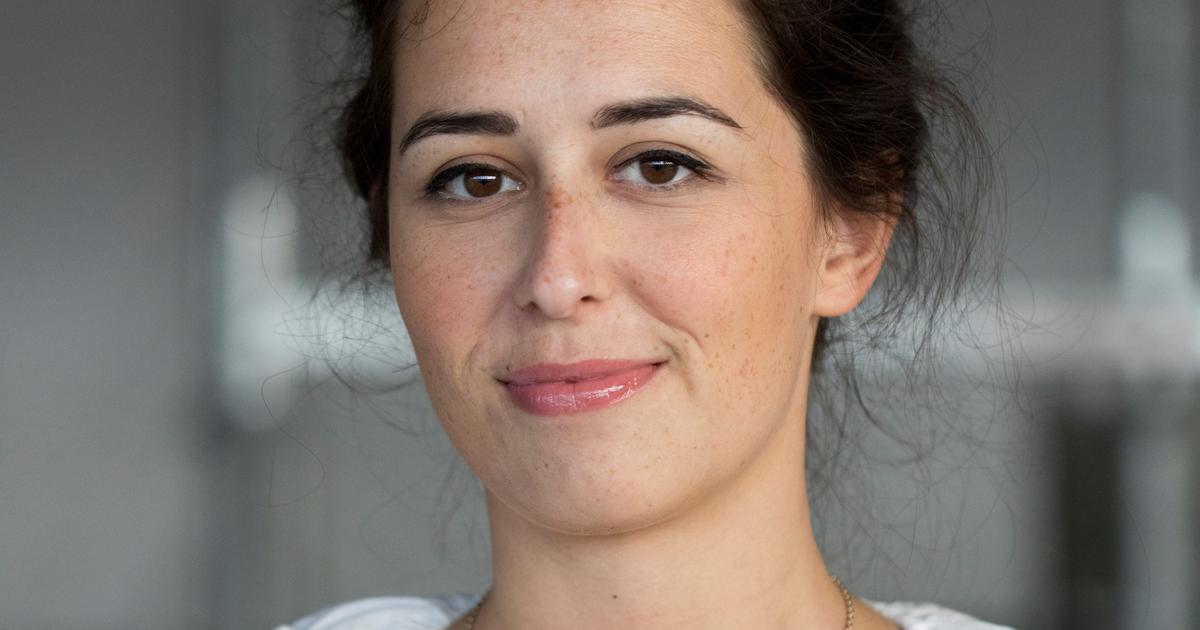By Darreonna Davis - CNBC
Keyli Motino is a first-generation Honduran-born college student who began to doubt her academic efficacy when she realized she was the only woman in her computer science class.
"I thought: Do I really belong here? My confidence was down," says Motino, who just finished his freshman year at Franklin and Marshall College.
What he felt is called imposter syndrome and occurs when a person is not able to perceive their own abilities to the point of being considered an intellectual and professional fraud.
Keyli Motino, a first-generation college student, just finished her freshman year at Franklin and Marshall College.Keyli Motino
Motino is not alone.
More than half of the women asked about it say they felt impostors, compared to only 24% of men, according to a study by Heriot-Watt University and the School of Directors-General.
Younger people are more likely to feel impostors: 45% said they doubt their skills, compared to 30% of older professionals.
For Latina and Black college women, the challenges posed by racism and sexism make them even more susceptible to imposter syndrome.
A 2020 study by the Indian Institute of Management found that, for black doctoral and postdoctoral fellows in STEM (science, technology, engineering and mathematics) education, gender was one of many elements that they contributed to the impostor syndrome.
[Latina women earn almost 50% less than white men in the United States]
Unfortunately, being the only one in a career field doesn't just happen in college.
A 2019 report from LeanIn.org and McKinsey & Company found that 45% of women of color have been the only ones of their gender in corporate meetings, an even higher number in STEM fields.
"I think whenever you're first or only, you have that added pressure to represent your entire group," explains Valerie Young, co-founder of the Imposter Syndrome Institute.
"Finding support is essential, especially if you are the only one, the only one or one of the few," he says.
Encouraging bonding through college organizations, employee groups, professional associations, or even Facebook groups can help Black and Latina women manage their imposter sentiment in professional and academic settings.
Aside from gender, research also reveals that racial identity predicts imposter syndrome among high-achieving minorities.
“Latina women are sexualized,” says Latina chef Alejandra Ramos
March 23, 202103: 10
Kayla Kinsler graduated
magna cum laude
from Howard University last spring.
He was on the dean's list for all four years, did four internships, and currently works as a research assistant in the AHEaD (Advancing Health Equity and Diversity) summer research program at Stanford School of Medicine.
Despite her accomplishments, Kinsler continued to doubt her ability to be accepted into the Brown University School of Public Health, where she will pursue a Master of Public Health with a full scholarship this fall.
"I had no intention of entering, at all, because it is an Ivy League university and the competition is very high. I did not even see myself with a chance to enter," Kinsler acknowledges.
According to a study by the University of Texas at Austin, the feeling of impostor in Latino and black people is often linked to the anxiety caused by the stereotypes that are usually associated with their race.
Motino was blocked by emotions when he was one of 25 people admitted to an Apple Technology and Engineering Camp project one summer during high school.
"I was working on this project for the computer science part, and I just burst into tears because I just didn't think I could do it," explains Motino, revealing that, as she was the only one, she didn't know what to do or how to act.
Talisa Lavarry, owner of Yum Yum Morale, a company dedicated to diversity, equity, and inclusion in the workplace and author of
Confessions From Your Token Black Colleague
, advises Latina and Black women to give themselves more credit.
[Four Latinas in the Biden Administration reflect on immigration and "the tough decisions to be made" in the White House]
"It does not make sense that you feel that you do not deserve it; you are there. Somehow, you have entered there. I do not care how it happened, if it was by chance. You are there. Work. Your place is there," says Lavarry.
The impostor feeling can be even greater for Latina and Black women in professional and academic settings when they are not represented in leadership positions.
Only 58 black women and 71 Latino women are promoted for every 100 men promoted to managerial positions, according to a 2020 report from LeanIn.org and McKinsey & Company.
That same study found that only 3% of women of color held management positions in 2020, compared to 66% of white men.
"I think leaders - managers, in particular - have to use empathy and be willing to admit that Black and Latina women have struggled and are fighting in the workplace," Lavarry says.
"Their empathy and their willingness to train and follow up and, you know, really pay attention and invest in this area, that's what is going to help," he highlights.
Studies show that companies benefit from diversity and having women in leadership positions.
To continue to prosper, they should consider their plans to diversify their entry-level talent, management, leadership, and channeling programs.
Chaselynn Grant, a senior at Southern University and A&M College and the first HBCU to intern in Hollywood for Nucontext.
Michael Foster
As companies adapt to an ever-changing society, Black and Latina women are finding ways to manage their impostor feelings before graduating from college and entering the job market.
"I started writing little notes on the mirror that said: 'You are perfect' or 'You are successful," says Chaselynn Grant, a communication final year student at the University of the South and A&M College and the first HBCU fellow in Hollywood. and an intern at the production company NuContext Creative.
"Every time I feel strange in some way, I always think about what I have done in the last eight years, I have been in the country. I always think about how my path has been," recalls Motino.
Although Kinsler has not quite solved it, he is working on it: "I have to start showing myself and identifying myself as the person who corresponds to my achievements. I have not reached that point."
Latina women with inspiring stories: Laurie Hernandez, Diana Trujillo and more
Sept.
13, 202002: 04
College Voices is a series written by CNBC fellows from universities across the country about how they achieve their college education, manage their money, and launch their careers in these extraordinary times. Darreonna Davis, a third-year journalism student at Howard University, is currently a fellow on the CNBC specials team. Her mentor on CNBC is Courtney Connley. The series is edited by Cindy Perman. This article was translated into Spanish by Sara Puig.














